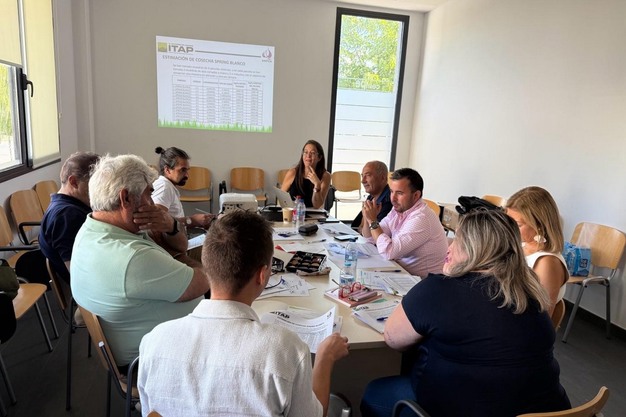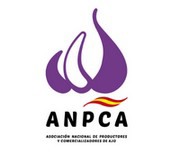The Spanish National Association of Garlic Producers and Marketers (ANPCA) has expressed serious concern about the difficult situation facing the sector, marked by a series of unprecedented events that threaten the future of garlic farms in Spain and across the European Union.
According to ANPCA, one of the most worrying factors is the depletion of tariff quotas for imports from third countries, a situation that has never occurred before. This has led to a significant influx of foreign produce into European markets. Additionally, the association notes that this product isn't subject to the same strict phytosanitary regulations that European growers must follow.
 © ANPCA
© ANPCA
On top of this, there's a sharp increase in production costs, mainly due to the low yields caused by the lack of active ingredients available to fight pests and diseases. According to ANPCA, the absence of reliable phytosanitary solutions places European garlic at a clear disadvantage compared to its international competitors, seriously undermining its competitiveness.
ANPCA emphasizes that garlic is not just a vital economic crop but also a social one. "The current trend puts garlic cultivation at risk of disappearing, with all the implications that come with that for rural areas," stated the association's secretary, José Carlos Arroyo.
ANPCA also pointed out that the €1,200/ton deterrent tariff set by the EU in 2001 is now completely outdated. In Spain alone, cumulative inflation from 2001 to 2025 has already increased by 77%, meaning this tariff has lost much of its protective value in real terms.
"If the tariff were updated to reflect the current situation, it would be €2,130/ton, restoring the sector's protection to the level it had when it was first introduced," said the association's vice-president, Antonio Escudero.
 © ANPCA
© ANPCA
Given these circumstances, ANPCA urges the responsible authorities to implement a fundamental shift in European agricultural and trade policies, focusing on three main areas of action:
- Updating the dissuasive tariff to account for accumulated inflation so that it fulfills its true protective role.
- Authorizing and registering active materials through a single system of maximum residue limits (MRLs) set by the European Commission, rather than by country. This change would lower costs for companies and speed up the introduction of new active substances to the market.
- Improving supervision and monitoring at European customs to ensure that imports from third countries meet the same phytosanitary standards as EU-produced goods.
"Unless we take immediate and strong action, Spanish and European garlic will be pushed out of all markets, with disastrous consequences for thousands of families and the rural economy," said Juan Salvador Peregrín, president of ANPCA.
 For more information:
For more information:
ANPCA
Email: [email protected]
www.anpca.es
